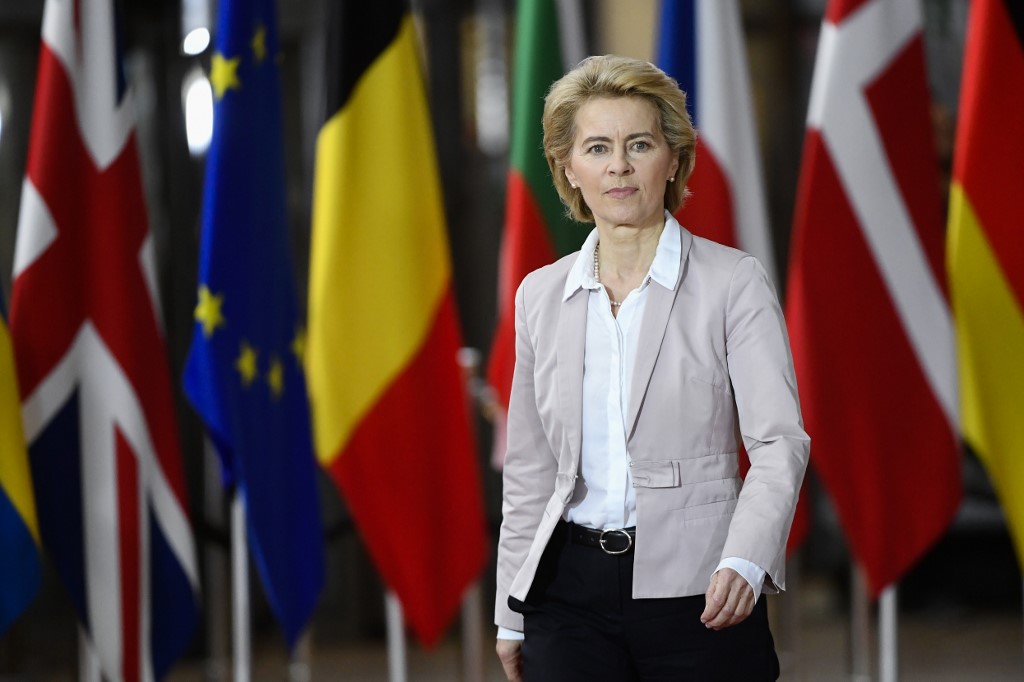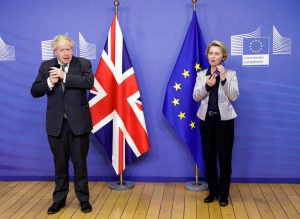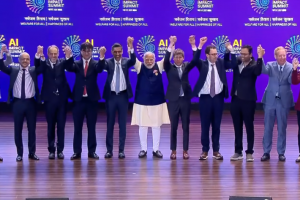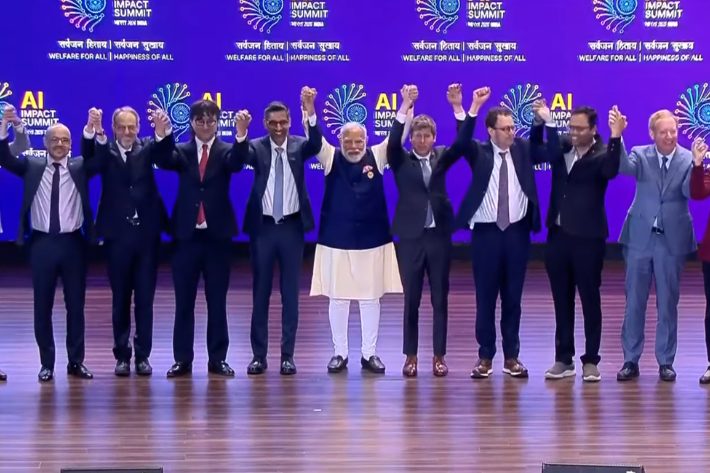British and European negotiators were sent back to work Sunday after Prime Minister Boris Johnson and EU chief Ursula von der Leyen agreed to abandon their supposed make-or-break deadline.
The two said last week they would decide whether an agreement was possible by the end of Sunday, but after a cross-Channel crisis call they agreed to “go the extra mile”.
“We had a useful phone call this morning. We discussed the major unresolved topics,” von der Leyen said in a video message, reading out a joint statement agreed with Johnson.
“Our negotiating teams have been working day and night over recent days.”
The EU’s Michel Barnier and Britain’s David Frost held talks late on Saturday and early on Sunday. They have been alternating between the capitals but a European official said that, for the moment, they would remain in Brussels.
In their joint statement, the leaders said: “We have accordingly mandated our negotiators to continue the talks and to see whether an agreement can even at this late stage be reached.”
‘Far apart’
But speaking for himself, Johnson insisted that agreement was far from sure with less than three weeks to go until Britain leaves the EU single market at the end of the year.
“I’m afraid we’re still very far apart on some key things, but where there’s life there’s hope,” he told reporters.
“The UK certainly won’t be walking away from the talks. I still think there’s a deal to be done if our partners want to do it,” he added, four days after he and von der Leyen had said they would pull the plug on talks on Sunday if no breakthrough was in sight.
Johnson said Britain “would be as creative as we possibly can” – amid reports that the sides are nearing a deal on how to respond if their regulations diverge over time and threaten fair competition.
But Britain could not compromise on the “fundamental nature” of Brexit, controlling UK laws and fisheries, he said.
Without a trade deal, cross-Channel trade will revert to WTO rules, with tariffs driving up prices and generating paperwork for importers, and the failed negotiation could poison relations between London and Brussels for years to come.
‘No stone unturned’
Ireland stands to lose out more than most EU countries if trade with its larger neighbour is disrupted, and Foreign Minister Simon Coveney cautiously welcomed the reprieve for negotiations.
“Time to hold our nerve and allow the negotiators to inch progress forward, even at this late stage. Joint statement on Brexit negotiations is a good signal. A deal clearly very difficult, but possible,” he tweeted.
The hardline pro-Brexit faction in Johnson’s own British Conservatives was unconvinced, however, and fired a warning shot.
Welsh MP David Jones tweeted: “If EU will finally respect UK sovereignty, abandon demands for ECJ jurisdiction and acknowledge that we have the right to say who fishes in our waters, we may yet get a deal.
“Otherwise, there seems little purpose in protracting this process.”
Much of the text of a possible trade deal is said to be ready, but Britain and Brussels are wrangling over the mechanism to allow it to retaliate if UK and EU law diverge in a way that puts continental firms at a competitive disadvantage.
Red line
“The defence of the single market is a red line for the European Union,” an EU source said. “What we have proposed to the United Kingdom respects British sovereignty. It could be the basis for an agreement.”
In London, the government insists that Britain is ready to leave the union and handle its own affairs after 47 years of close economic integration.
Downing Street says it has mapped out “every single foreseeable scenario” for problems after December 31, and “no one needs to worry about our food, medicine or vital supply chains.”
But British business is unconvinced.
British Chambers of Commerce president Ruby McGregor-Smith said the UK needs a deal “as soon as possible”.
“We need to understand how we are going to trade and what the rules are,” she told Sky News. “We found with the pandemic what mattered was the detail of whatever has been agreed on government support, and this is exactly going to be the same.”
Fishing grounds
Four Royal Navy patrol ships will be ready on January 1 to help protect Britain’s fishing waters in the event the Brexit transition period ends without a deal on future ties with the European Union, the Ministry of Defence said, as reported by Reuters.
The Ministry of Defence says four Royal Navy patrol ships will be ready on the first of January to help protect Britain’s fishing waters in the event of a no-deal Brexit.
There are concerns about possible skirmishes between British and foreign fishing vessels if no trade deal is reached, as existing rules that give EU boats access to British waters is set to expire at the end of the year.
A spokesman said that the MOD ”has conducted extensive planning and preparation to ensure that Defence is ready for a range of scenarios at the end of the Transition Period.”
- AFP and Reuters























